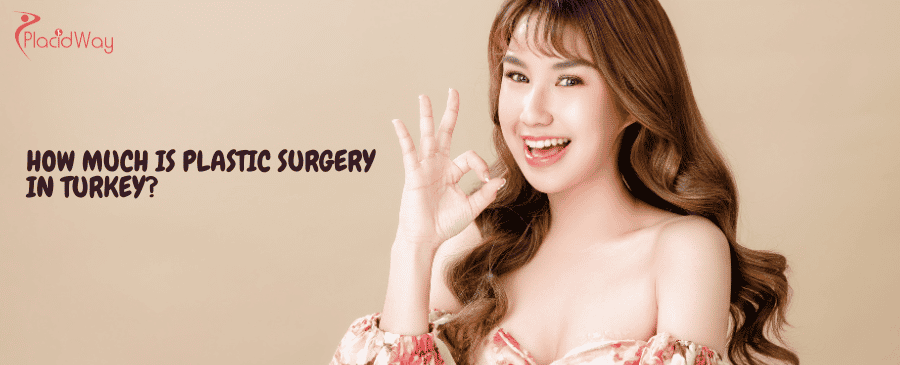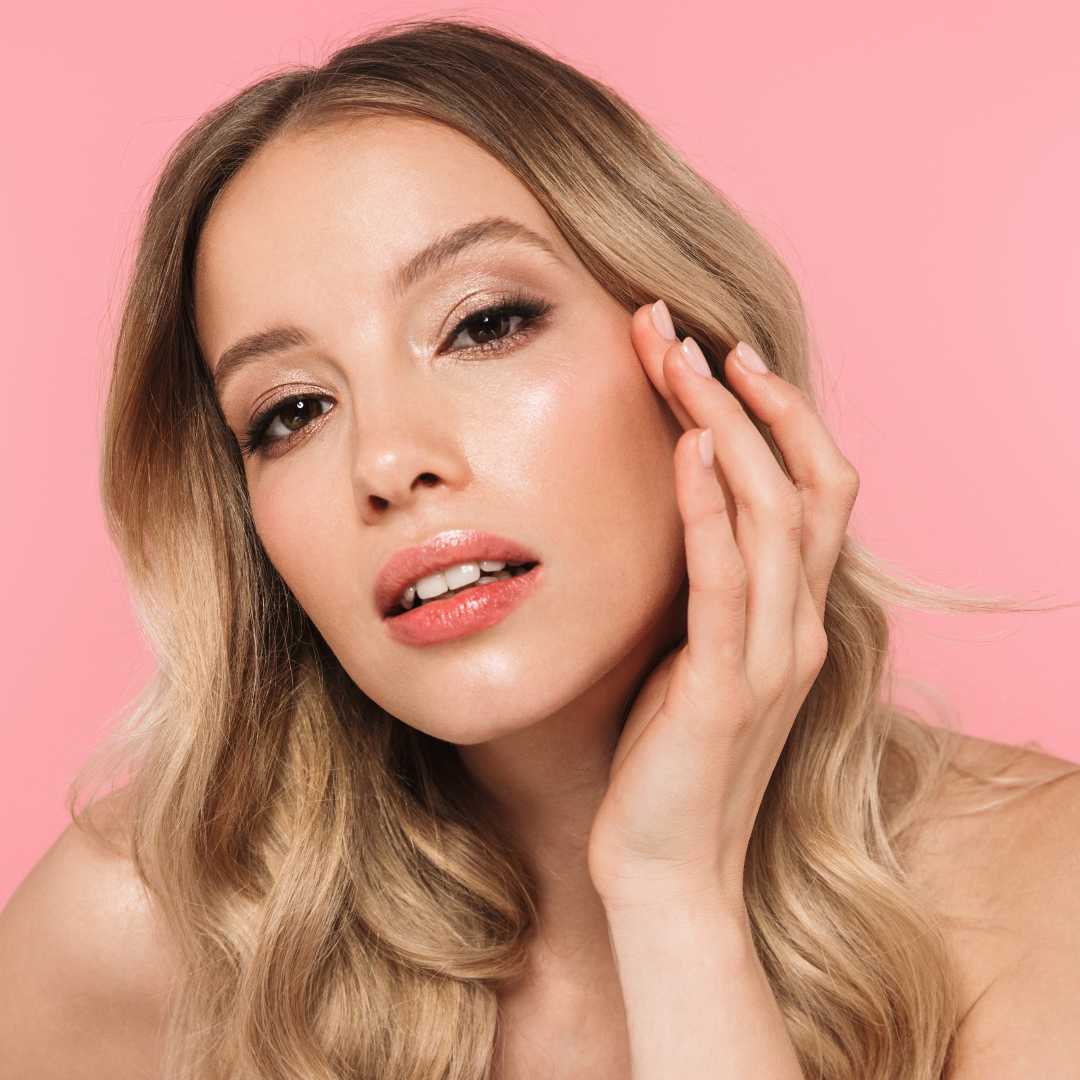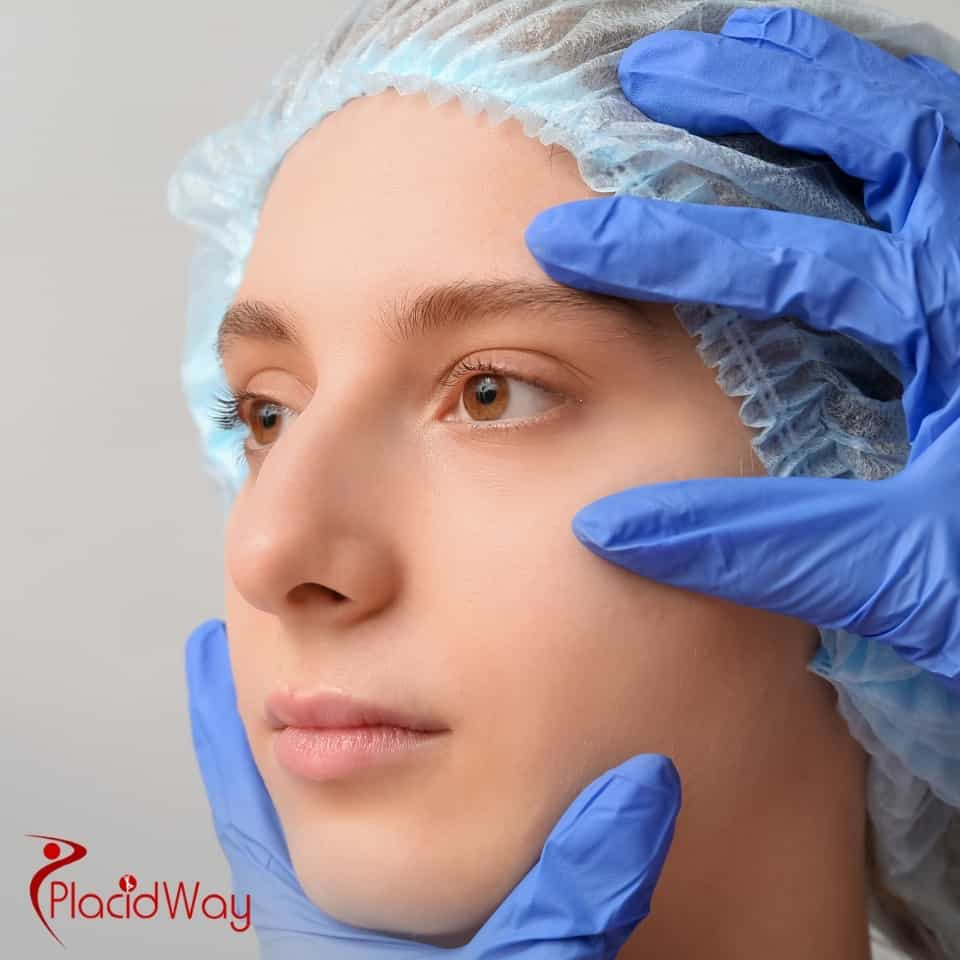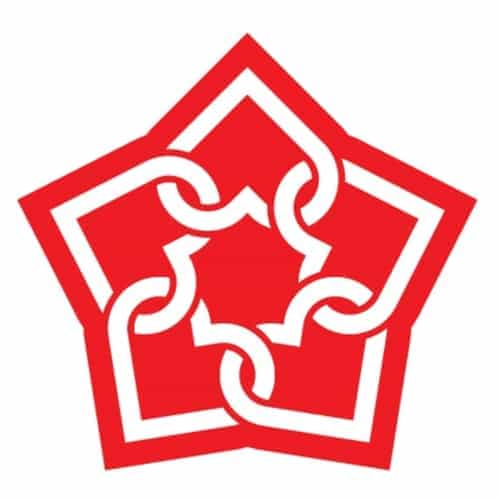Cost of Plastic Surgery in Turkey: Guide & Prices

Turkey has rapidly emerged as a global hotspot for plastic surgery, attracting individuals worldwide seeking high-quality cosmetic enhancements at significantly more affordable prices. The cost of plastic surgery in Turkey is a primary draw, often being 50-70% lower than in countries like the US, UK, or Western Europe, without compromising on the expertise of surgeons or the standards of medical facilities. If you're considering aesthetic procedures, understanding the financial aspects and what contributes to Turkey's competitive pricing is crucial.
This comprehensive guide will delve into the costs of various plastic surgeries in Turkey, explore the factors influencing these prices, and answer common questions about safety, quality, and the overall process. We aim to provide you with the detailed information you need to make an informed decision about pursuing cosmetic surgery in Turkey.
Why is Plastic Surgery in Turkey More Affordable?
"Plastic surgery in Turkey is more affordable primarily due to lower operational expenses, favorable currency exchange rates for international patients, government support for medical tourism, and high competition among numerous accredited clinics, all while maintaining high medical standards."
The significantly lower cost of plastic surgery in Turkey isn't an indicator of compromised quality but rather a reflection of the country's economic structure. Operational costs, including clinic and hospital overheads, staff salaries, and lab work, are substantially less than in Western nations. Furthermore, the Turkish government actively promotes medical tourism by offering incentives and support to clinics that meet international accreditation standards.
The favorable exchange rate between the Turkish Lira and currencies like the US Dollar, Euro, or British Pound means that international patients get more value for their money. Additionally, the high number of well-equipped and professionally staffed plastic surgery clinics in Turkey, particularly in cities like Istanbul, Antalya, and Izmir, fosters healthy competition, which helps keep prices competitive. Despite these lower prices, top Turkish clinics boast JCI (Joint Commission International) accreditation and employ surgeons often trained in Europe and the USA.
What is the Average Cost of Plastic Surgery in Turkey?
"The average cost of plastic surgery in Turkey can range broadly from $1,500 to $8,000 (€1,400 to €7,500) depending on the specific procedure, the complexity, the surgeon's experience, and the clinic's reputation. Many clinics offer all-inclusive packages."
It's important to understand that there isn't a single "average" price that applies to all procedures. For instance, less invasive treatments or minor adjustments will be at the lower end of the spectrum, while more complex surgeries or combined procedures will naturally cost more. Many reputable Turkish plastic surgery clinics offer all-inclusive packages, which typically cover the surgery itself, anesthesia, hospital stay, pre-operative tests, post-operative medications, accommodation, and airport/clinic transfers. This transparency in pricing is a significant advantage for medical tourists.
To give you a better idea, here's a general overview of potential price ranges for some of the most sought-after procedures. Keep in mind these are estimates and can vary:
- Rhinoplasty: $2,500 - $5,500
- Breast Augmentation: $3,000 - $6,500
- Liposuction (per area): $2,000 - $4,500
- Brazilian Butt Lift (BBL): $3,500 - $7,000
- Facelift: $4,000 - $8,000
- Tummy Tuck: $3,500 - $7,000
- Hair Transplant (FUE/DHI): $1,500 - $4,000
How Much Does Rhinoplasty (Nose Job) Cost in Turkey?
"A rhinoplasty (nose job) in Turkey typically costs between $2,500 and $5,500 (€2,300 to €5,100). The final price can depend on the complexity of the procedure (e.g., primary vs. revision, open vs. closed technique) and the surgeon's expertise."
Rhinoplasty is one of the most popular plastic surgery procedures in Turkey. The cost is significantly lower than in the US or UK, where it can easily exceed $7,000-$15,000. Factors influencing the rhinoplasty cost in Turkey include whether it's a primary surgery or a more complex revision rhinoplasty (which often costs more), the surgical technique used (open or closed), the extent of correction needed (e.g., tip plasty, ethnic rhinoplasty, septorhinoplasty), and the experience and reputation of the surgeon.
All-inclusive rhinoplasty packages in Turkey usually cover the surgeon's fees, anesthesia, operating room charges, pre-operative consultations, necessary medical tests, one-night hospital stay if required, post-operative medications, and follow-up appointments. Some packages may also include accommodation and transfers.
What is the Price of Liposuction in Turkey?
"The price of liposuction in Turkey generally ranges from $2,000 to $4,500 (€1,850 to €4,200) per treated area. The total cost will increase if multiple areas are treated or if advanced techniques like VASER liposuction are used."
Liposuction in Turkey offers a cost-effective way to remove stubborn fat deposits. The cost depends on the number of areas being treated (e.g., abdomen, thighs, arms, back), the volume of fat to be removed, the specific liposuction technique employed (e.g., traditional, laser-assisted, VASER), and the duration of the surgery. For instance, 360 liposuction in Turkey, which targets the entire midsection, will be more expensive than treating a single small area.
Clinics often provide package deals for liposuction, which might include the surgical procedure, anesthesia, compression garments, hospital stay (if needed), and post-operative care. It's crucial to discuss with your surgeon which technique is best suited for your goals and get a detailed breakdown of the costs involved.
How Much is Breast Augmentation in Turkey?
"Breast augmentation in Turkey typically costs between $3,000 and $6,500 (€2,800 to €6,000). This price often includes the cost of high-quality implants (e.g., Mentor, Motiva), surgeon fees, hospital stay, and post-operative care."
The cost of breast augmentation in Turkey is considerably lower than in many Western countries. Key factors affecting the price include the type and brand of breast implants chosen (silicone vs. saline, specific brands like Mentor or Motiva which are FDA-approved), the surgical approach, the surgeon's experience, and the clinic's facilities. Combining breast augmentation with a breast lift (mastopexy) will also influence the final cost.
Most Turkish clinics offer comprehensive packages for breast augmentation that cover the implants, surgeon's fee, anesthesia, hospital fees (usually one night's stay), pre-operative tests, post-operative medication, and compression bras. Always ensure the implants used are internationally recognized and come with a warranty.
What is the Cost of a Brazilian Butt Lift (BBL) in Turkey?
"A Brazilian Butt Lift (BBL) in Turkey typically costs between $3,500 and $7,000 (€3,250 to €6,500). The cost varies based on the amount of liposuction required, the complexity of the fat transfer, and the surgeon's expertise in this specialized procedure."
The BBL procedure in Turkey has gained immense popularity due to the skilled surgeons and attractive pricing. A BBL involves two main steps: liposuction to harvest fat from donor areas (like the abdomen, back, or thighs) and then processing and injecting this fat into the buttocks to enhance volume and shape. The cost of a BBL in Turkey is influenced by the number of liposuction areas needed to harvest sufficient fat, the surgical time, the technology used for fat processing, and the surgeon's specific experience with BBLs.
Packages for BBL surgery in Turkey usually include the liposuction, fat transfer, anesthesia, hospital stay, post-operative garments, medications, and follow-up care. Given the specialized nature of this procedure, thorough research into the surgeon's qualifications and BBL-specific experience is paramount.
How Much Does a Hair Transplant Cost in Turkey?
"A hair transplant in Turkey generally costs between $1,500 and $4,000 (€1,400 to €3,700). The price depends on the number of grafts needed, the technique used (FUE, DHI, or Sapphire FUE), and the comprehensiveness of the package."
Turkey is arguably the world leader in hair transplant procedures, attracting tens of thousands of patients annually. The cost of a hair transplant in Turkey is significantly lower than in North America or Europe. The main factors influencing the price are the number of hair grafts required to achieve the desired density, the chosen transplantation method (Follicular Unit Extraction - FUE, Direct Hair Implantation - DHI, or Sapphire FUE which uses sapphire blades), and the clinic's reputation.
Hair transplant packages in Turkey are almost always all-inclusive, covering the procedure, consultation, PRP (Platelet-Rich Plasma) therapy sessions (often included), medications, special shampoos and lotions for aftercare, accommodation for a few nights, and all necessary transfers.
What is the Price of a Facelift in Turkey?
"A facelift in Turkey typically costs between $4,000 and $8,000 (€3,700 to €7,500). The cost can vary based on the extent of the facelift (e.g., mini facelift, full facelift, deep plane facelift) and whether it's combined with other procedures like a neck lift or blepharoplasty."
A facelift (rhytidectomy) in Turkey can achieve significant rejuvenation at a more accessible price point. The cost of a facelift is determined by the type of facelift performed – a mini facelift is less extensive and therefore less costly than a full or deep plane facelift. Combining a facelift with other procedures such as a neck lift, eyelid surgery (blepharoplasty), or brow lift will also impact the overall price. The surgeon's expertise in facial anatomy and advanced facelift techniques is crucial.
Facelift packages in Turkey typically include the surgeon's fees, anesthesia, hospital stay (often 1-2 nights), pre-operative assessments, post-operative care including medications and follow-up consultations, and sometimes accommodation and transfers.
What Factors Influence the Cost of Plastic Surgery in Turkey?
"Several factors influence the cost of plastic surgery in Turkey, including the surgeon's experience and reputation, the clinic's accreditation and facilities, the complexity and type of procedure, the kind of anesthesia used, the quality of materials (like breast implants), the length of hospital stay, and the inclusiveness of the surgery package."
Understanding these factors can help you assess the quotes you receive:
- Surgeon's Expertise and Reputation: Highly experienced surgeons with a strong portfolio of successful outcomes may charge more.
- Clinic/Hospital Standards: Clinics with international accreditations (like JCI), advanced technology, and luxurious facilities might have higher prices, but this often correlates with higher safety and quality standards.
- Complexity of the Procedure: More complex or lengthy surgeries naturally cost more. Revision surgeries are also typically more expensive than primary procedures.
- Type of Anesthesia: General anesthesia is usually more expensive than local anesthesia or sedation.
- Materials Used: The quality and brand of implants (for breast or buttock augmentation), or specific technologies used (e.g., VASER for liposuction), can affect the price.
- Hospital Stay: The duration of your hospital stay, if required, will be factored into the cost.
- Package Inclusions: Comprehensive all-inclusive packages might seem more expensive upfront but can offer better value and prevent unexpected additional costs.
- Geographic Location within Turkey: Clinics in major cities like Istanbul might have slightly different pricing compared to those in smaller cities, though this is not always a significant factor.
Is Plastic Surgery in Turkey Safe?
"Yes, plastic surgery in Turkey is generally safe when performed by qualified, board-certified surgeons in accredited and well-equipped medical facilities. Many Turkish clinics adhere to high international standards of care and hygiene, and surgeons are often internationally trained."
Turkey has invested heavily in its healthcare infrastructure, and many top clinics and hospitals meet or exceed international standards, often holding JCI (Joint Commission International) accreditation. Surgeons frequently have memberships in international plastic surgery societies and possess extensive experience. However, like any surgery anywhere in the world, there are inherent risks.
To ensure safety, it's crucial to:
- Thoroughly research your chosen surgeon and clinic.
- Verify the surgeon's credentials and board certifications.
- Check for clinic accreditations and patient reviews.
- Have a detailed consultation and ensure all your questions are answered.
- Be honest about your medical history.
- Follow all pre-operative and post-operative instructions carefully.
Are Turkish Plastic Surgeons Qualified?
"Yes, many Turkish plastic surgeons are highly qualified, often having received training in Turkey, Europe, and the United States. They are typically members of national and international plastic surgery associations and are experienced in a wide range of cosmetic procedures."
The Turkish Ministry of Health has strict regulations for medical practitioners and facilities. Many leading plastic surgeons in Turkey are board-certified by the Turkish Society of Plastic, Reconstructive and Aesthetic Surgery (TSAPS) and may also hold certifications from European boards (e.g., EBOPRAS - European Board of Plastic Reconstructive and Aesthetic Surgery) or be members of ISAPS (International Society of Aesthetic Plastic Surgery).
When choosing a surgeon, look for their qualifications, years of experience specifically in the procedure you're interested in, before-and-after photos of their previous patients, and patient testimonials. A reputable surgeon will be transparent about their credentials.
What's Typically Included in a Plastic Surgery Package in Turkey?
"A typical all-inclusive plastic surgery package in Turkey often includes the surgeon's fee, anesthesia costs, operating room charges, pre-operative tests, hospital stay (if necessary), post-operative medications, necessary garments (like compression wear), follow-up appointments, accommodation for a specified period, and airport/clinic transfers."
Most reputable clinics catering to international patients offer all-inclusive plastic surgery packages to simplify the process and provide cost transparency. While the exact inclusions can vary slightly from clinic to clinic and depending on the procedure, common components are:
- Medical Services: Initial consultation (often online and in-person), surgeon’s fee, anesthesia, operating room fee, hospital room for recovery (e.g., 1-2 nights), prescribed medications during your stay and for initial aftercare, medical consumables, and post-operative check-ups.
- Accommodation: Hotel stay for a certain number of nights (often 4 or 5-star hotels).
- Transfers: VIP airport pickup and drop-off, as well as transfers between the hotel and clinic for appointments.
- Patient Host/Translator: Many clinics provide a dedicated host or translator to assist you throughout your journey.
It's vital to get a detailed written breakdown of what is included in your specific package to avoid any misunderstandings. Flights to and from Turkey are usually not included.
Are There Hidden Costs I Should Be Aware Of?
"While reputable clinics offering all-inclusive plastic surgery packages in Turkey aim for transparency, potential extra costs could include flights, visa fees (if applicable), meals not covered by the hotel, additional nights of accommodation if you choose to stay longer, non-standard medications, or further treatments if complications arise outside the scope of the initial agreement. Always clarify all potential costs upfront."
The best way to avoid hidden costs is to choose a clinic that offers a detailed, written quotation outlining everything included in the package. Ask specifically about:
- Flights: These are almost never included.
- Visa: Depending on your nationality, you might need a visa.
- Additional Medications: If you require specific medications not typically provided or if you need them for a longer period.
- Extended Stays: If you decide to extend your hotel stay beyond what's in the package.
- Special Garments: While basic garments are often included, you might want to purchase extras.
- Revision Surgery: Understand the clinic's policy on revision surgeries – who covers the cost if a revision is needed due to medical reasons versus aesthetic dissatisfaction.
- Complications: Discuss how potential complications are handled financially. Some clinics offer complication insurance as part of their package or as an optional add-on.
- Personal Expenses: Sightseeing, shopping, and most meals will be your own responsibility.
How Do I Choose a Good Plastic Surgery Clinic in Turkey?
"To choose a good plastic surgery clinic in Turkey, research their accreditation (e.g., JCI, ISO), verify the surgeon's board certifications and experience, read patient reviews and testimonials on independent platforms, examine before-and-after photos, and ensure they offer comprehensive pre-operative and post-operative care and clear communication."
Here’s a checklist for selecting a clinic:
- Accreditation and Licensing: Look for internationally recognized accreditations like JCI and ensure the clinic is licensed by the Turkish Ministry of Health.
- Surgeon's Credentials: Verify the surgeon’s board certifications (e.g., Turkish Society of Plastic, Reconstructive and Aesthetic Surgery, EBOPRAS, ISAPS), training, and specific experience in your desired procedure.
- Patient Reviews and Testimonials: Check independent review sites (e.g., RealSelf, Trustpilot, Google Reviews) and forums. Be wary of overly perfect reviews or a lack of diverse feedback.
- Before & After Photos: Review the clinic's portfolio of real patient results for the procedure you are considering. Ensure the photos look authentic and showcase results consistent with your aesthetic goals.
- Communication: The clinic should be responsive, transparent, and able to answer all your questions clearly in a language you understand. A dedicated international patient coordinator is a good sign.
- Facilities and Technology: Inquire about the hospital or clinic's facilities, equipment, and hygiene standards.
- Consultation: Have a thorough consultation (even if virtual initially) with the surgeon, not just a sales representative.
- Aftercare Support: Ensure they provide clear post-operative care instructions and support, including how they handle follow-ups once you return home.
What Questions Should I Ask Before My Surgery in Turkey?
"Before your plastic surgery in Turkey, ask about the surgeon's qualifications and experience with your specific procedure, the details of the surgical plan, the type of anesthesia, potential risks and complications, the recovery process and timeline, what's included in the total cost, the clinic's policy on revisions, and what post-operative support is available."
Here’s a list of crucial questions:
- Are you board-certified in plastic surgery? Which boards?
- How many years of experience do you have with this specific procedure?
- Can I see before-and-after photos of your previous patients for this procedure?
- Where will the surgery be performed (hospital name and accreditation)?
- What surgical technique will you use for my procedure, and why is it best for me?
- What type of anesthesia will be used, and who will administer it?
- What are the potential risks and complications associated with this surgery?
- What does the recovery process entail, and how long will it take? When can I return to work/normal activities?
- What is the total cost of the procedure, and what does it include (get a detailed written breakdown)?
- Are there any potential additional costs I should be aware of?
- What is your policy on revision surgeries if needed?
- What kind of post-operative care and follow-up will I receive, both in Turkey and after I return home?
- Who will be my main point of contact before, during, and after the surgery?
- What should I do to prepare for the surgery?
- How long will I need to stay in the hospital and in Turkey?
What is the Recovery Process Like After Plastic Surgery in Turkey?
"The recovery process after plastic surgery in Turkey varies significantly depending on the type and extent of the procedure. Generally, it involves an initial period of swelling, bruising, and discomfort managed with medication, followed by a gradual return to normal activities over several weeks to months. Adherence to post-operative instructions is crucial for a smooth recovery."
Your surgeon will provide specific recovery guidelines. Common aspects include:
- Initial Recovery (First few days to 1 week): Expect swelling, bruising, and pain/discomfort, which can be managed with prescribed medication. You may need to wear compression garments or bandages. Limited mobility is common.
- Early Recovery (1-3 weeks): Swelling and bruising will start to subside. You might be able to resume light activities. Stitches may be removed during this time.
- Mid-Recovery (3-6 weeks): Most significant swelling should resolve. You can typically return to work (depending on the job's nature) and light exercise as approved by your surgeon.
- Long-Term Recovery (Months): Final results will become more apparent as residual swelling disappears and tissues settle. Scars will continue to fade and mature over 6-12 months or longer.
Clinics in Turkey usually provide detailed post-operative care instructions and schedule follow-up appointments before you leave. Many also offer remote follow-up support.
How Long Should I Stay in Turkey After My Procedure?
"The recommended length of stay in Turkey after plastic surgery typically ranges from 7 to 14 days, depending on the procedure. This allows for initial recovery, removal of stitches if necessary, and crucial post-operative check-ups with your surgeon before you are cleared to fly home."
For example:
- Rhinoplasty: Usually 7-10 days.
- Breast Augmentation/Lift/Reduction: Around 7-10 days.
- Liposuction: 5-7 days for smaller areas, up to 10 days for more extensive liposuction.
- BBL: 7-10 days, sometimes longer to ensure initial healing of fat grafts.
- Facelift/Tummy Tuck: Often 10-14 days due to the more extensive nature of these surgeries.
- Hair Transplant: 3-5 days is often sufficient, as major check-ups are done within this timeframe.
Your surgeon will advise the optimal duration for your specific case to ensure your safety and the best possible outcome. Flying too soon after surgery can increase risks like blood clots.
Can I Combine Multiple Plastic Surgery Procedures in Turkey?
"Yes, it is often possible to combine multiple plastic surgery procedures in Turkey, commonly referred to as a 'mommy makeover' or 'combo surgery.' This can be more cost-effective and involve a single recovery period, but it depends on your overall health, the duration of the combined surgeries, and your surgeon's assessment of safety."
Combining procedures like a tummy tuck with breast augmentation and liposuction (a common mommy makeover) is popular. Other combinations could include a facelift with blepharoplasty or rhinoplasty with chin augmentation. The main advantages are achieving a more comprehensive transformation with one anesthesia administration and one recovery period. It can also be more economical than having each procedure separately.
However, combining surgeries increases the operative time and the physiological stress on the body. Your surgeon will carefully evaluate your health status (including blood tests and sometimes an EKG) to determine if you are a suitable candidate for combined procedures and which combinations are safe for you. The total operating time is a key consideration for safety.
What are the Risks Associated with Plastic Surgery in Turkey?
"Like any surgery, plastic surgery in Turkey carries potential risks such as infection, bleeding, adverse reaction to anesthesia, blood clots, poor wound healing, scarring, asymmetry, nerve damage, and dissatisfaction with results. Choosing an accredited facility and an experienced, board-certified surgeon, along with diligent pre- and post-operative care, can significantly minimize these risks."
While Turkey has many high-standard facilities, it's important to be aware of the general risks associated with cosmetic surgery anywhere:
- Infection: Strict hygiene protocols are essential.
- Hematoma/Seroma: Collection of blood or fluid under the skin.
- Anesthesia Complications: Rare but possible.
- Deep Vein Thrombosis (DVT) / Pulmonary Embolism (PE): Blood clots, a risk especially with longer surgeries and travel.
- Poor Scarring: Keloids or hypertrophic scars.
- Nerve Damage: Temporary or, rarely, permanent numbness or altered sensation.
- Unsatisfactory Aesthetic Outcome: The results may not meet your expectations.
- Need for Revision Surgery: Sometimes further procedures are needed.
Discuss these risks thoroughly with your surgeon. Ensure the clinic has protocols for managing complications and provides comprehensive aftercare information. Choosing a reputable, JCI-accredited hospital often means they are better equipped to handle any emergencies.
How Do I Plan My Travel and Accommodation for Plastic Surgery in Turkey?
"When planning travel and accommodation for plastic surgery in Turkey, first choose your clinic and surgeon. Many clinics offer all-inclusive packages that cover hotel stays and transfers. If not, book flights to major cities like Istanbul, Antalya, or Izmir, and choose accommodation close to your clinic that is comfortable for recovery. Arrive at least a day or two before surgery for pre-op consultations and tests."
Here are some planning tips:
- Select Clinic First: Your choice of clinic and surgeon will dictate the city you travel to.
- Package Deals: Opt for an all-inclusive package if possible, as this usually includes 4 or 5-star hotel accommodation and all necessary transfers (airport-hotel-clinic). This simplifies logistics significantly.
- Flights: Book flights well in advance, especially during peak seasons. Consider direct flights if available.
- Visa Requirements: Check if you need a visa for Turkey based on your nationality and ensure your passport is valid.
- Accommodation (if not in a package): If booking your own, choose a hotel that is comfortable, quiet, and close to your clinic for easy access to follow-up appointments. Ensure it has amenities suitable for recovery (e.g., room service, accessible showers).
- Timing: Arrive at least 1-2 days before your scheduled surgery to allow for pre-operative consultations, medical tests, and to settle in.
- Duration of Stay: Plan to stay for the duration recommended by your surgeon (typically 7-14 days post-op).
- Packing: Pack loose, comfortable clothing that is easy to put on and take off, any personal medications (cleared with your surgeon), and entertainment for your recovery period.
- Communication: Ensure you have a way to communicate (e.g., international roaming, local SIM card). Many clinics provide patient coordinators who speak your language.
Ready to explore your options for high-quality, affordable plastic surgery? PlacidWay can connect you with leading clinics and experienced surgeons in Turkey and around the world. Discover personalized healthcare solutions tailored to your needs and budget. Start your journey to a more confident you today!


.png)





.png)

.png)






Share this listing